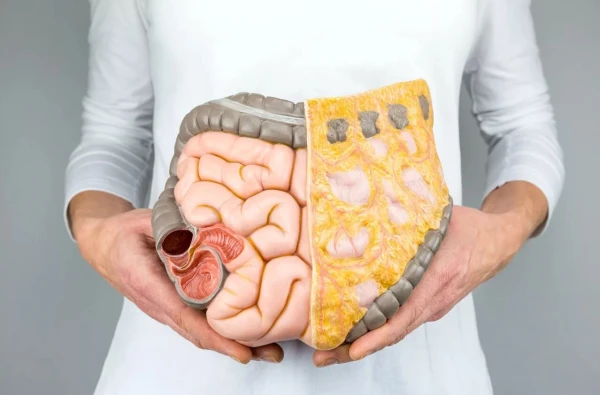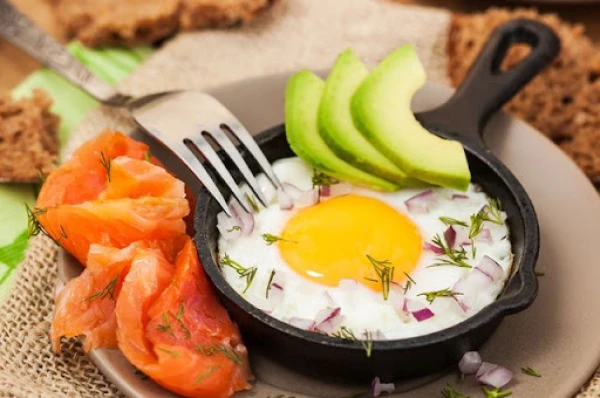
In recent years, the gut microbiome has become one of the most popular topics for research in health, and for good reason—it is home to billions of microorganisms that daily influence not only digestion but also immunity, mood, and even energy levels.
Does this invisible world help or, on the contrary, create problems? Much depends on our diet. Certified nutrition specialist Dr. Laila Silinaya and pharmacist Alina Fleishmane explain which foods help maintain the balance of the gut environment and which can disrupt this fragile harmony.
"The gut microbiome can be compared to an ecosystem: when diversity and balance dominate, a person feels energetic and healthy. If the environment becomes monotonous or is disrupted by adverse factors, not only digestion but also immunity, sleep quality, and even emotional well-being can deteriorate. Scientific studies increasingly confirm that the state of the microbiome is closely linked to the risk of chronic inflammation and the development of various diseases, including obesity, type 2 diabetes, cardiovascular diseases, and even depression," says Dr. Laila Silinaya.
Friends of the Microbiome that Strengthen Health
Fermented foods are particularly important for maintaining the balance of the gut microbiome. They contain live bacteria and biologically active compounds that help replenish and diversify the microbiota. Daily diet should include kefir, yogurt with live cultures, buttermilk, as well as fermented vegetables such as cabbage, cucumbers, or kimchi. Fermented soy products, including tempeh and miso, are also valuable.
Fiber and prebiotics—substances that serve as a food source for beneficial bacteria—also play an important role in the health of the microbiome. They are mainly found in fiber-rich foods: vegetables, root vegetables, leafy greens, fruits, and berries. A variety of prebiotics in the diet helps enrich the composition of the microbiome and improve its ability to protect the body.
Legumes—beans, peas, lentils—as well as whole grains such as oats, rye, buckwheat, and brown rice provide additional benefits. Enriching the diet with nuts and seeds provides fiber and valuable fats, while onions, garlic, asparagus, artichokes, and cruciferous vegetables—broccoli, white cabbage, and cauliflower—serve as powerful sources of prebiotic substances. Such nutrition simultaneously provides essential nutrients and creates a favorable environment for the development and strengthening of "good bacteria".
"The health of the microbiome is influenced not only by diet but also by lifestyle as a whole. Quality sleep, low stress levels, regular movement, fresh air, and adequate water intake create an environment where beneficial bacteria can thrive and maintain diversity. If it is not possible to provide the body with a balanced diet, dietary supplements such as probiotics, prebiotics, fiber supplements, or Omega-3 fatty acids can be used as additional support, which positively affects both the gut environment and overall health," adds Alina Fleishmane.
Enemies of the Microbiome that Disrupt Balance
One of the main enemies of the microbiome is sugar and sugar-rich products: sweets, pastries, sodas, and other sweetened beverages. They not only cause sharp fluctuations in blood sugar levels but also promote the dominance of harmful bacteria in the microbiome. Processed foods and various convenience foods also disrupt the balance. For example, French fries, burgers, sausages, and hot dogs contain excessive amounts of saturated fats, salt, and often trans fatty acids, which negatively affect the microbiome in the long term.
"To maintain the health of the microbiome, it is important to avoid excessive food additives and overconsumption of convenience foods," emphasizes the pharmacist, "trans fatty acids pose a particular danger, as they can disrupt the balance of the gut microbiome in the short term and increase the risk of cancer in the long term. Negative influences also come from smoking, excessive alcohol consumption, and large doses of caffeine—these factors generally weaken the microbiome and reduce its ability to protect the body."
As Laila Silinaya notes, increasing attention is being paid to artificial sweeteners—although they reduce the number of calories from sugar, studies show that in the long term, they may alter the composition of gut bacteria and adversely affect metabolism.













